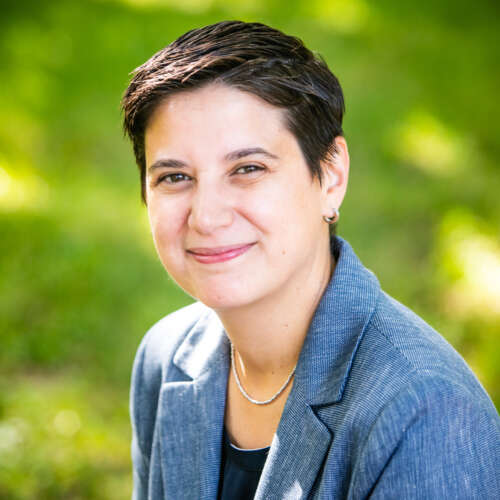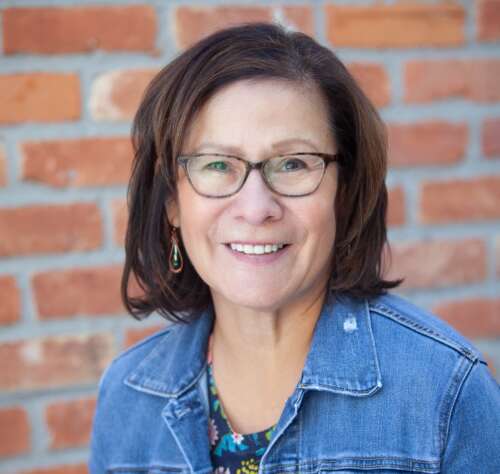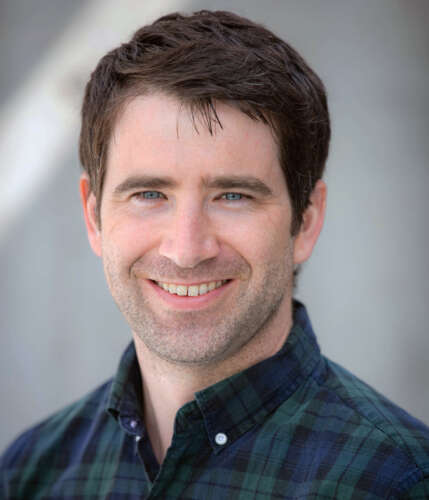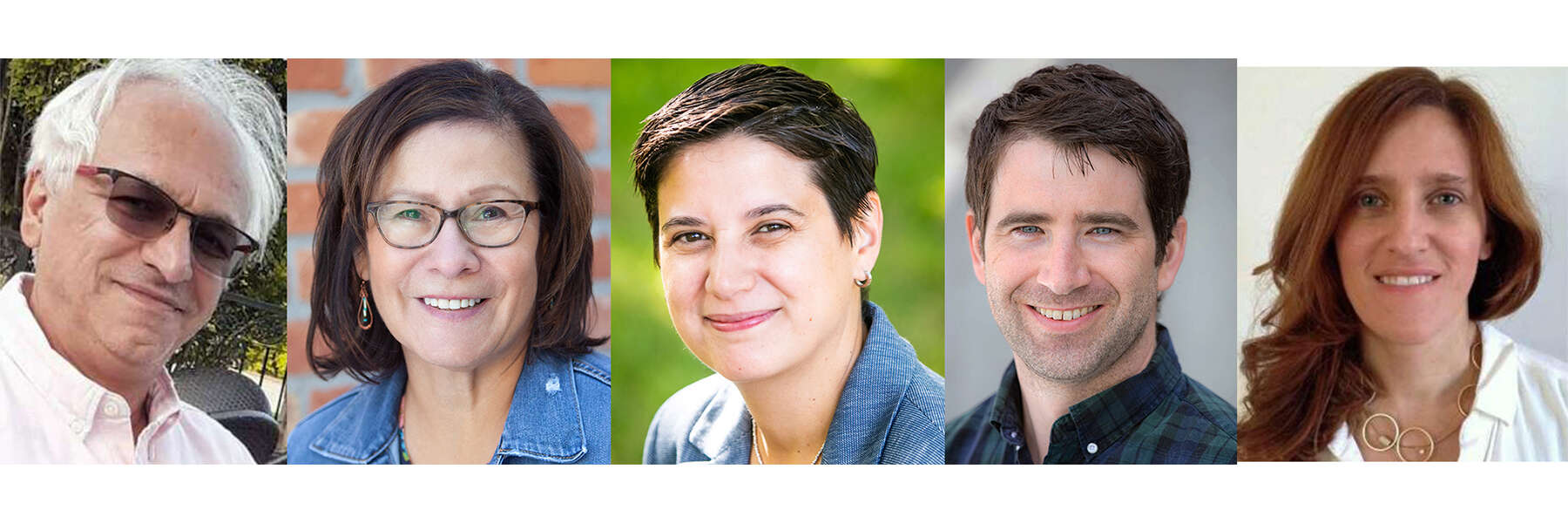The federal government will invest more than $1.1 million in 11 University of Guelph research projects, ranging from clean energy to food spoilage to Indigenous environmental health.
The Canada Foundation for Innovation (CFI) will fund the projects through its John R. Evans Leaders Fund, which helps universities recruit and retain outstanding faculty and provides researchers with infrastructure required to become leaders in their fields.
These U of G awards are part of more than $64 million in CFI funding to support 251 new research infrastructure projects at 40 institutions across Canada.
“This generous and strategic CFI investment will provide exceptional University of Guelph researchers with the vital tools they need to expand knowledge and advance the boundaries of discovery and innovation,” said Dr. Malcolm Campbell, vice-president (research). “These researchers each explore different questions, but they all aim to broaden their disciplines and improve life in meaningful ways.”
“I am pleased to see the Canadian government continue to fund primary researchers at the University of Guelph through the Canada Foundation of Innovation JELF program,” said Lloyd Longfield, MP for Guelph. “This support shows the range of research happening at the U of G including clean energy, healthful food, cell production to fight disease, and our understanding of pain. These projects contribute to One Health that connects life in all forms.”
Dr. Maria Corradini

Dr. Corradini will receive $93,855 for studies with Dr. Iris Joye and Dr. Michael Rogers in the Department of Food Science, on how food structure affects the production of healthier, safer, and longer shelf-life foods.
Improving the shelf life, healthfulness, and digestibility of prepared food currently relies on additives and extensive processing. The researchers will acquire a fluorescence lifetime imaging microscope to investigate food structure, or how food components are organized and interact.
They expect this research will help in developing novel, healthful foods that will also benefit the environment and ensure the competitiveness of Canada’s food sector.
Dr. Giannina Descalzi

Dr. Descalzi, Department of Biomedical Sciences, will receive $130,000 to study the mechanisms that cause acute pain to become persistent chronic pain.
Chronic pain changes the activity within brain regions involved in emotion. Using animal models, Descalzi will track changes across this pain–emotion brain circuit as acute pain transitions to chronic pain and will investigate the molecular causes.
To precisely control, monitor, and record the electrical activity of neural circuits, she will use an integrated calcium imaging and optogenetics system along with molecular techniques.
Improved understanding of the molecular, cellular and circuit basis of chronic pain will help lead to better treatment for humans and animals.
Dr. Khashayar Ghandi

Supporting clean energy technologies is the goal of a $207,747 project by Dr. Ghandi and Dr. Marcel Schlaf, both in the Department of Chemistry.
Ghandi will study how the chemical components of substances such as coolants, metals, and lubricating oil change under the high-temperature, high-pressure conditions of nuclear reactors. He also aims to develop new processes for clean free-radical polymerization and increased reactor efficiency.
Schlaf aims to develop cost-effective processes to convert sugars derived from renewable biomass — organic matter such as agricultural or forestry waste — into precursors of the same polymers now made from fossil fuel, to reduce petrochemical consumption in the production of these polymers.
The researchers will acquire a supercritical water system, which can simulate extreme conditions and analyze the resulting chemical reactions.
Dr. Diana Lewis

Dr. Lewis, Department of Geography, Environment and Geomatics, will receive $106,983 to support the IndigenERA Lab, a storage and analysis facility for data collected during the development of Indigenous environmental health risk assessments (IEHRA).
Grounded in Indigenous conceptions of health, an IEHRA considers human physical, mental, emotional and spiritual health and ties them to the health of the land, water, animals and plants.
Working with four Indigenous communities from across Canada whose health and local surroundings have been affected by resource extraction and industrial development, Lewis and her team will collect data — such as oral histories, surveys, and government statistics — to support each community’s IEHRA.
Lewis will acquire computing equipment and software to securely house and analyze this information, which will remain in the control of the Indigenous communities.
Dr. Matthew Sorbara

Combatting antimicrobial resistance is the aim of a $87,596 project by Dr. Sorbara, Department of Molecular and Cellular Biology.
Antibiotics disrupt the gut microbiota — the community of diverse microbes that live in the gastrointestinal tract — and leave the body vulnerable to antibiotic-resistant pathogens.
One potential solution is to reintroduce beneficial microbes to quickly restore and boost gut health. However, not enough is understood about optimal microbes for treatment.
Sorbara will study what Lachnospiraceae, a specific family of bacteria in the microbiota, contributes to gut health and how they work with other microbes.
He will acquire specialized equipment to culture the bacteria and a gas chromatography–mass spectrometry to track and profile their metabolic activities.
Other JELF funding recipients
- Dr. Georgia Mason, Col. K.L. Campbell University Chair in Animal Welfare, $99,633, to study ways of improving the physical health, cognitive functioning, and stress resilience of animals in human care such as research labs and rehabilitation or breeding programs; with Dr. Sherri Cox and Dr. Amy Newman, both in the Department of Integrative Biology
- Dr. Philip Millar, Department of Human Health and Nutritional Sciences (HHNS), $124,738, to better identify and understand risk factors for cardiovascular disease; with Dr. Jamie Burr and Dr. Amanda Wright, also of HHNS
- Dr. Barbara Morrongiello, Department of Psychology and Canada Research Chair in Child and Youth Injury Prevention, $27,805, to study how children’s visual attention impacts their risk of injury at street crossings
- Dr. Priyanka Pundir, Department of Molecular and Cellular Biology, $87,595, to study how the skin’s microbiome helps in skin health and repair
- Dr. Courtney Schott and Dr. Mauricio Seguel, both in the Department of Pathobiology, $145,336, to better understand autophagy, one of the body’s cellular housekeeping processes
- Dr. Yang Xu, Department of Molecular and Cellular Biology, $87,595, to explore the use of plants and microalgae in the production of value-added oils for the food, nutrition and biofuel industries
